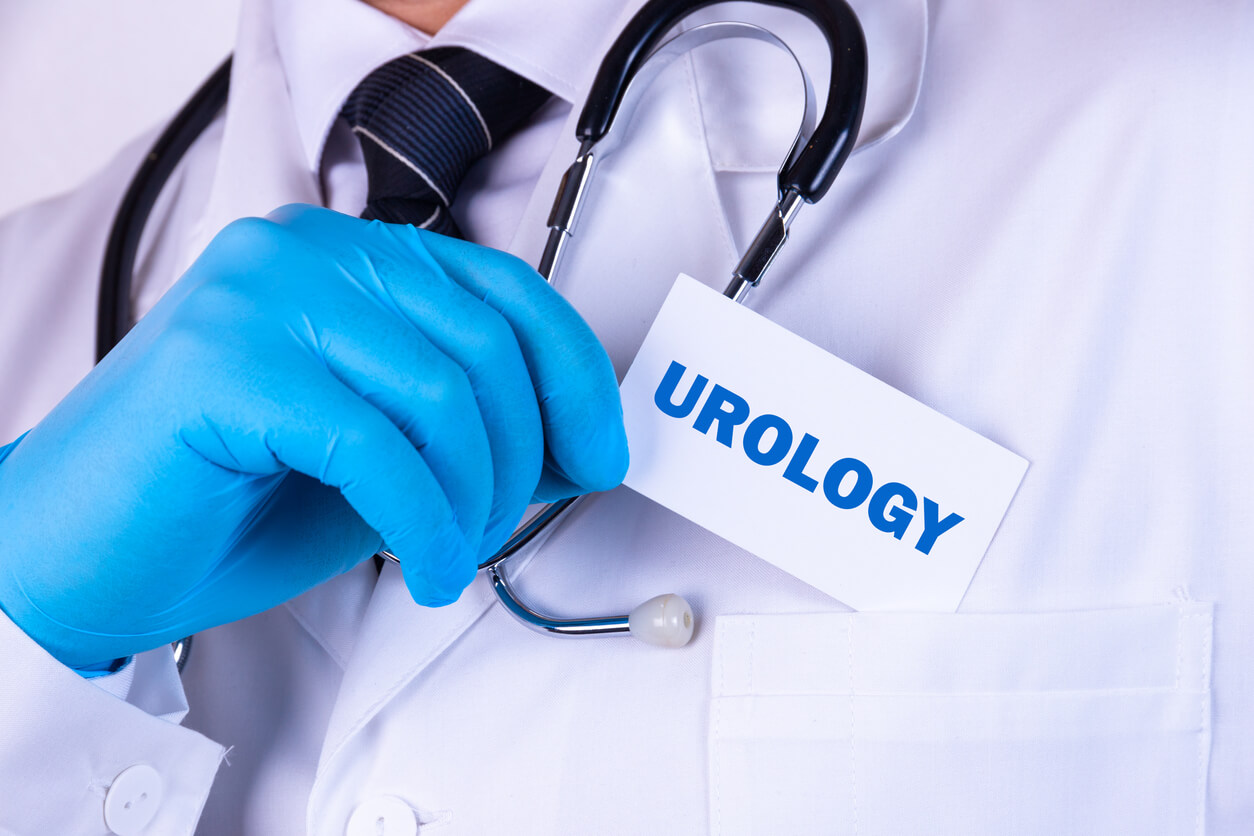Finding the Best Urologist Near You
When it comes to your urological health, selecting the right urologist can make a significant difference in your overall well-being. Whether you’re seeking treatment for kidney stones, urinary tract infections, prostate issues, or other urological concerns, finding the best urologist near you is crucial for receiving the highest quality care. In this comprehensive guide, we’ll walk you through the steps to identify and choose the best urologist for your needs.

Qualities of a Top Urologist
Choosing the best urologist involves considering a range of essential qualities and factors:
Expertise and Specialization
A top urologist possesses a deep understanding of urological conditions and treatments. Look for specialists who have expertise in the specific area that aligns with your needs, such as kidney health, male or female urology, or oncology.
Credentials, Certifications, and Affiliations
Ensure your chosen urologist is board-certified and holds relevant certifications. Affiliations with reputable medical organizations demonstrate their commitment to up-to-date practices.
Patient Reviews and Testimonials
Patient reviews provide valuable insights into the urologist’s skills, bedside manner, and overall patient experience. Consistent positive feedback is a positive indicator of their quality of care.
Communication Skills and Patient-Centered Care
Effective communication is key to a successful patient-doctor relationship. The best urologists actively listen, explain complex medical concepts clearly, and involve patients in decision-making.
How to Search for the Best Urologist Near You
Finding the ideal urologist involves strategic research and evaluation:
Local Directories and Medical Associations
Start your search with local medical directories and urology associations. These resources provide lists of urologists, along with details about their specialties and contact information.
Online Reviews and Ratings
Leverage online platforms to read patient reviews and ratings. Platforms like Google Reviews and Healthgrades offer insights into patients’ experiences, waiting times, and overall satisfaction.
Recommendations from Primary Care Physicians
Your primary care physician can offer valuable recommendations based on your health history and needs. They often have a network of trusted specialists.
Ask Friends and Family for Referrals
Personal recommendations from friends and family who have received urological care can provide authentic insights.
Key Considerations in Choosing a Urologist
Make an informed decision by considering these important factors:
Location and Accessibility
Opt for a urologist whose office is conveniently located, reducing travel time and stress.
Accepted Insurance Plans and Payment Options
Ensure your chosen urologist accepts your insurance plan to avoid unexpected costs. Inquire about payment options and financial assistance if needed.
Appointment Availability and Scheduling
Choose a urologist with flexible appointment scheduling, including online booking. Swift availability is crucial for prompt treatment.
Telehealth and Virtual Consultation Options
Many urologists offer telehealth services, enabling virtual consultations for certain appointments, providing convenience and safety.
Specializations and Services Offered
Urologists have diverse specializations and services:
General urology services cover a broad spectrum of urological concerns.
Urological surgery expertise is essential for surgical interventions.
Treatment of specific conditions like kidney stones, urinary tract infections, and prostate issues.
Assessing Urologist Credentials and Expertise
When it comes to your urological health, you deserve the best care possible. Evaluating a urologist’s credentials and expertise is a crucial step in your search for the right healthcare provider:
Board Certification and Training
Look for urologists who are board-certified by recognized medical boards. Board certification indicates that the urologist has met rigorous standards and has undergone specialized training in urology.
Sub-Specializations
Urology encompasses various sub-specializations, such as pediatric urology, urologic oncology, female urology, and more. If you have specific needs, consider a urologist who specializes in the relevant area.
Experience and Case Volume
While credentials are important, experience is equally vital. Inquire about the urologist’s experience in treating conditions similar to yours. A higher case volume often correlates with greater expertise.
Involvement in Research and Innovation
Urologists who are actively engaged in research and innovation are likely to be up-to-date with the latest advancements in urological care. Their involvement can translate to better treatment options for you.
The Importance of Comfort and Communication
Effective communication and a comfortable patient-doctor relationship significantly impact your urological journey:
Bedside Manner
A compassionate and empathetic urologist can make a significant difference in your experience. Look for a urologist who listens attentively and addresses your concerns with respect.
Clear Explanations
Complex medical terminology can be overwhelming. Choose a urologist who can explain diagnoses, treatment plans, and procedures in understandable terms, empowering you to make informed decisions.
Shared Decision-Making
Collaborative decision-making involves working with your urologist to determine the best treatment approach based on your preferences and medical needs. A urologist who values your input can enhance the effectiveness of your care.
Evaluating Patient Reviews and Testimonials
Online reviews can offer valuable insights into a urologist’s practice. Here’s how to interpret patient feedback effectively:
Look for Consistent Themes
While individual experiences may vary, consistent positive themes in reviews can highlight a urologist’s strengths. Pay attention to mentions of skill, bedside manner, and overall patient satisfaction.
Consider the Volume of Reviews
A large volume of reviews provides a more accurate representation of a urologist’s practice. A urologist with a substantial number of reviews and a high overall rating is likely to provide quality care.
Read Both Positive and Constructive Reviews
While positive reviews are reassuring, constructive feedback can also be informative. Assess how the urologist responds to criticism and whether they take patient concerns seriously.
Scheduling Your Initial Urology Consultation
Now that you have a clear understanding of how to identify the best urologist for your needs, it’s time to take the next steps towards scheduling your initial consultation:
Compile Your Medical History
Before your consultation, gather all relevant medical records, test results, and a comprehensive medical history. This information will provide your chosen urologist with valuable insights into your health.
Prepare Questions
Jot down a list of questions and concerns you want to address during your appointment. This proactive approach ensures that you cover all relevant topics and maximize the value of your consultation.
Verify Insurance Coverage
Contact your health insurance provider to verify coverage for urology services. Understanding your insurance policy can help you navigate potential costs and ensure a smooth billing process.
Contact the Urology Practice
Reach out to the urology practice of your choice to schedule an appointment. Many practices offer online appointment booking or the option to speak with a scheduling coordinator directly.
What to Expect During Your Urology Appointment
Your first urology appointment is an essential step in your healthcare journey. Here’s what you can anticipate:
Comprehensive Evaluation
During your initial visit, your urologist will conduct a thorough evaluation of your medical history, symptoms, and any relevant diagnostic test results. Be prepared to discuss your concerns in detail.
Physical Examination
A physical examination may be conducted to assess your urological health. This may involve specific tests or procedures to gather accurate information.
Discussion of Treatment Options
Based on your evaluation, your urologist will discuss potential treatment options tailored to your needs. This may include lifestyle modifications, medications, or further diagnostic tests.
Addressing Your Concerns
Your urologist will take the time to address your questions and concerns. Feel free to share your expectations, preferences, and any apprehensions you may have.
Follow-Up and Ongoing Care
After your initial consultation, your urologist may recommend follow-up appointments or additional tests. Ongoing care is crucial for managing urological conditions effectively:
Adherence to Treatment Plans
Follow your urologist’s treatment recommendations diligently. This may involve taking prescribed medications, making lifestyle changes, or attending regular check-ups.
Open Communication
Maintain open communication with your urologist. If you experience any changes in your symptoms or have concerns about your treatment, don’t hesitate to reach out.
Monitoring and Adjustments
Your urologist will monitor your progress and make adjustments to your treatment plan as needed. Regular follow-up appointments allow for timely interventions and improvements.
Preventive Measures
Urological health involves preventive measures as well. Your urologist may provide guidance on how to minimize the risk of certain conditions and maintain optimal well-being.
Frequently Asked Questions (FAQs) About Finding the Best Urologist Near You
Q: Why is it important to find the best urologist near me?
A: Finding the best urologist ensures you receive specialized care tailored to your urological needs, leading to accurate diagnoses, effective treatments, and improved quality of life.
Q: How can I search for the best urologist in my area?
A: Start by researching online directories, reading patient reviews, and asking for recommendations from your primary care physician or trusted friends and family members.
Q: What qualifications should I look for in a urologist?
A: Look for board certification, specialized training, relevant sub-specializations, experience, and involvement in research and innovation.
Q: Can I choose a urologist based on their patient reviews?
A: Patient reviews provide valuable insights into a urologist’s practice and patient experiences. Consider both positive and constructive feedback when making your decision.
Q: How do I ensure effective communication with my urologist?
A: Choose a urologist who listens attentively, explains medical terms in understandable language, and values shared decision-making in your treatment journey.
Q: What questions should I ask during my initial consultation?
A: Prepare questions about your condition, treatment options, expected outcomes, potential risks, and any concerns you may have about your urological health.
Q: Are there online resources that can help me find the best urologist near me?
A: Yes, online healthcare platforms and directories can provide information about urologists in your area, including their credentials, specialties, and patient reviews.
Q: How can I verify if a urologist accepts my insurance?
A: Contact the urology practice directly or check their website to confirm whether they accept your health insurance plan and to inquire about any potential out-of-pocket costs.
Q: What can I expect during my first urology appointment?
A: Your urologist will conduct a comprehensive evaluation, discuss your medical history, perform a physical examination, and engage in a dialogue about potential treatment options.
Q: What should I do after my initial urology consultation?
A: Follow your urologist’s recommendations, adhere to treatment plans, maintain open communication, attend follow-up appointments, and prioritize preventive measures for long-term urological health.
Conclusion
Choosing the best urologist near you involves careful consideration, research, and a proactive approach to your healthcare. By prioritizing qualifications, patient experiences, and effective communication, you’re well on your way to receiving the exceptional urological care you deserve.




